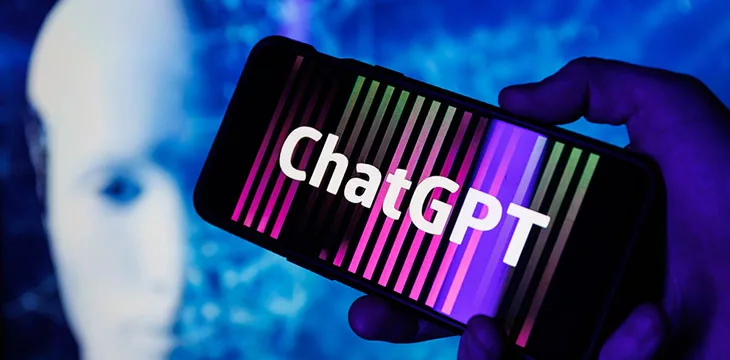|
Getting your Trinity Audio player ready...
|
Apple (NASDAQ: AAPL) says staff could inadvertently release confidential data to ChatGPT, joining Verizon (NASDAQ: VZ), JPMorgan (NASDAQ: JPM), Deutsche Bank (NASDAQ: DB), and Samsung (NASDAQ: SSNLF) in banning artificial intelligence (AI) at the workplace.
Apple is restricting its employees from using ChatGPT, the popular AI chatbot developed by OpenAI, citing fears about data leaks.
In a document reviewed by the Wall Street Journal, Apple also restricted the use of other AI tools, including Copilot, a device that automates the writing of AI code, and was developed by GitHub, a company owned by Microsoft (NASDAQ: MSFT). Microsoft is also among the biggest investors in OpenAI.
According to the document and sources from the iPhone maker with knowledge of the matter, the company is concerned its employees could release confidential data to AI tools.
Apple becomes the latest global giant to ban or restrict the use of AI tools. America’s largest bank, JPMorgan Chase, restricted ChatGPT in February, citing compliance concerns with third-party software. The bank had also warned its staff against entering sensitive information into the chatbot, a warning IKEA had issued earlier.
Other major companies that have taken similar measures include Samsung, Verizon, Deutsche Bank, Accenture (NASDAQ: ACN), and weapons behemoth Northrop Grumman (NASDAQ: NOC). Amazon (NASDAQ: AMZN), on its part, has requested its engineers to use its own internal AI tools rather than ChatGPT and other rivals.
These companies have good reason to be wary of ChatGPT use. By default, the chatbot stores all its interactions with its users to train OpenAI’s systems. Last month, the company released a new feature that lets users turn off their chat history. However, even with this feature, the company still stores the history for 30 days, and its engineers can access this data to review it for abuse.
Data access, abuse, integrity, privacy, and storage concerns can be addressed with blockchain technology.
Apple, the world’s largest company at $2.75 trillion, was a trailblazer in AI with features such as its Siri voice assistant. However, its peers, including Google (NASDAQ: GOOGL) and Microsoft have leapfrogged it in recent years. A new generation of startups led by OpenAI is now leading the AI revolution, leaving Apple to catch up in a rapidly-evolving field.
In order for artificial intelligence (AI) to work right within the law and thrive in the face of growing challenges, it needs to integrate an enterprise blockchain system that ensures data input quality and ownership—allowing it to keep data safe while also guaranteeing the immutability of data. Check out CoinGeek’s coverage on this emerging tech to learn more why Enterprise blockchain will be the backbone of AI.
Watch: The future of AI Generated Art on Aym

 07-25-2025
07-25-2025 





